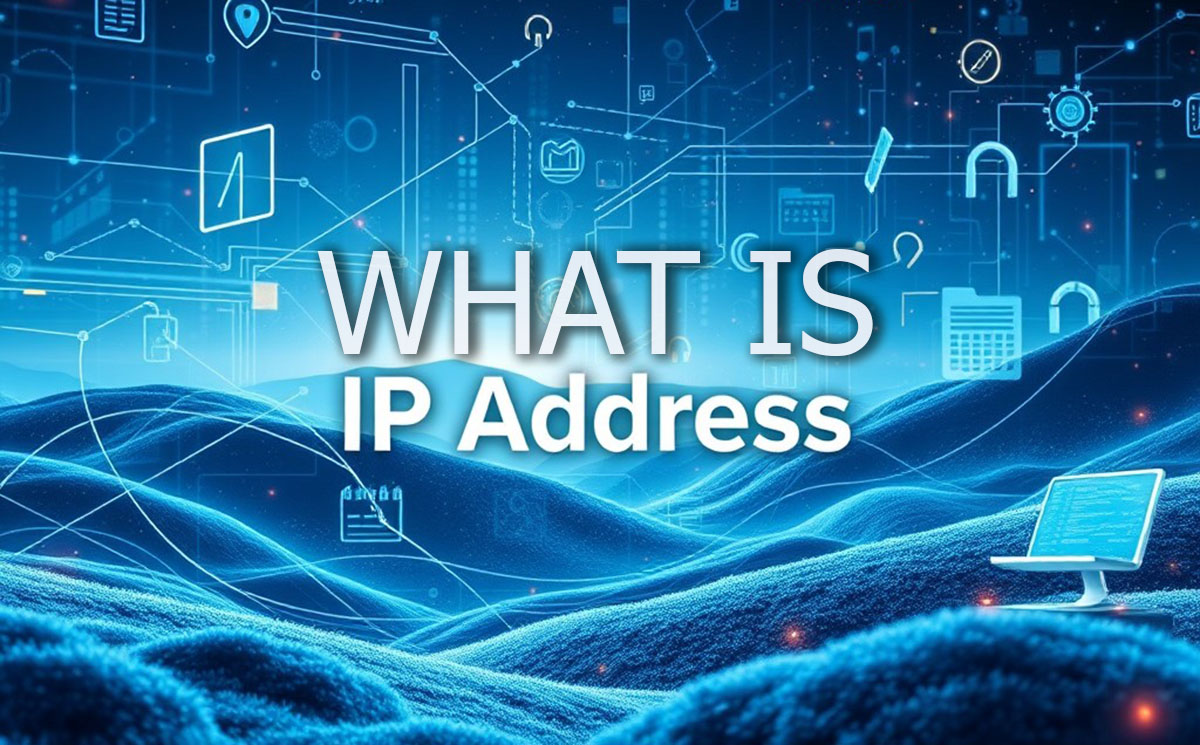An IP address serves as a unique identifier that links devices to the internet. Each time a connection is established, an assigned IP address enables communication with websites, applications, and services. This digital identifier plays a critical role in ensuring data reaches its intended destination.
The Role of IP Addresses in Online Connectivity
Every online interaction, from browsing websites to streaming content, relies on an IP address to facilitate communication. This identifier ensures that the correct data reaches the intended device without interference. Without an IP address, accessing online services and sharing information would be impossible.
How IP Addresses Reveal Information
IP addresses carry valuable data that can reveal details about a user’s location and online activities. By examining an IP address, websites and third parties can estimate a user’s geographical region, track browsing behavior, and even determine the type of device being used. Knowing how to check my IP can provide clarity about an individual’s online presence and security risks, offering insight into what information is accessible to others.
How IP Addresses Work
IP addresses function through a system of numerical labels assigned to each device connected to a network. These addresses are essential for routing data packets, ensuring seamless interaction between users and online services. Each address contains specific information that helps determine the source and destination of the transmitted data.
Why IP Addresses Matter for Privacy
Understanding the significance of IP addresses helps individuals recognize their potential exposure. An IP can reveal general location, browsing behavior, and even the type of device in use. This information can be accessed by websites, advertisers, and cybercriminals, highlighting the need for protective measures. For those seeking to manage their digital footprint, knowing how to check an IP provides clarity on their online presence and potential security risks.
Dynamic vs. Static IPs
IP addresses are categorized into two types: dynamic and static. A dynamic IP changes periodically and is typically assigned by an Internet Service Provider (ISP), while a static IP remains fixed and is commonly used for business or hosting purposes. Dynamic IPs offer greater privacy since they change over time, reducing the risk of prolonged exposure.
Risks Associated with Exposed IP Addresses
Leaving an IP address unprotected can expose individuals to various privacy and security threats. Cybercriminals frequently exploit exposed IPs to track online behavior, monitor activities, and even attempt unauthorized access to personal data. With sufficient information, attackers might pinpoint a user’s approximate location, making them vulnerable to targeted attacks. Exposed IPs also allow hackers to launch phishing attacks, distribute malware, or gain unauthorized entry into personal or corporate networks.
Tracking and Data Profiling
One common risk involves tracking by advertisers and third parties, which results in personalized ads and potential data profiling. This data can be used to build comprehensive user profiles, influencing marketing strategies and sometimes leading to identity fraud. Data brokers collect and sell such information, which could potentially fall into the wrong hands and be used for malicious purposes.
Cyber Threats and Attacks
Beyond marketing concerns, an unprotected IP increases exposure to cyber threats such as Distributed Denial-of-Service (DDoS) attacks and unauthorized surveillance. Cybercriminals often use exposed IP addresses to launch brute-force attacks or infiltrate systems through open ports. They may also exploit exposed IPs to create botnets, which can be used for large-scale cyberattacks or spamming activities.
Unauthorized Surveillance Risks
Governments, Internet Service Providers (ISPs), and malicious actors may use an exposed IP to monitor browsing activity and collect personal information. This data may be used for purposes beyond advertising, raising concerns about surveillance and loss of personal privacy. Unauthorized surveillance can lead to issues such as location tracking, behavioral analysis, and potential exploitation.
Measures to Mitigate Risks
Securing an IP address minimizes these risks and helps preserve privacy. Using security tools like VPNs, firewalls, and proxy servers can significantly reduce exposure, providing users with greater control over their digital footprint. Regularly checking IP exposure, implementing encrypted connections, and staying informed about evolving threats further enhances online security.
How to Protect Your Online Identity
Maintaining online privacy requires proactive steps to shield an IP address from unwanted exposure. Virtual Private Networks (VPNs) provide an effective way to mask an IP by rerouting internet traffic through encrypted servers. This approach prevents third parties from tracking online activities or accessing sensitive details. Additionally, incorporating security measures such as secure web browsing practices and avoiding unsecured public Wi-Fi networks enhances overall online safety.
Using VPNs for Enhanced Security
A VPN encrypts internet traffic and routes it through secure servers, making it nearly impossible for third parties to monitor browsing habits or pinpoint exact locations. Different types of VPN services are available, with varying encryption levels and server locations to cater to different security needs. Some VPNs offer additional features, such as split tunneling and kill switches, to further enhance security.
Proxy Servers for Anonymity
Proxy servers offer another layer of anonymity, acting as intermediaries between a device and the internet. They conceal the original IP, making it more challenging for trackers to collect information. However, proxies differ from VPNs in that they do not encrypt data traffic, making them suitable for less sensitive tasks. It is essential to choose reputable proxy providers to avoid potential risks such as data logging and exposure.
Firewalls as a Protective Barrier
Firewalls also play a crucial role by filtering incoming traffic and blocking suspicious connections. They act as a barrier between a user’s device and potential threats, ensuring unauthorized access is prevented. Both hardware and software firewalls provide an essential defense mechanism. Configuring firewall settings properly and using intrusion detection systems (IDS) can offer an added layer of security.
Importance of Software Updates
Regularly updating software and operating systems strengthens security by addressing vulnerabilities that attackers might exploit. Developers frequently release patches to fix security loopholes, making it vital to keep systems up to date. Outdated software can serve as an entry point for cybercriminals, allowing them to take advantage of unpatched flaws and compromise sensitive information. Automating updates can ensure that critical patches are applied promptly.
Password Management Strategies
Choosing strong, unique passwords across different platforms further enhances security. A robust password management strategy includes using password managers to store credentials securely and enabling multi-factor authentication (MFA) to add an extra layer of defense. Implementing biometric authentication where possible can provide an additional security layer, making unauthorized access more difficult.
Tools for Managing and Checking Your IP
Features of IP Checking Tools
Various online tools provide insights into an IP address, allowing users to verify their IP, check location data, and identify potential security risks. These services offer features such as geolocation, ISP details, and proxy detection. Some tools provide additional information, such as whether an IP is associated with suspicious activities or frequently used for spam and fraud.
Advanced IP Management
Advanced IP management tools can track changes in real time, alerting users to potential threats and unauthorized access attempts. They also provide detailed reports, allowing users to monitor their digital footprint over time and assess risks associated with their online activities.
Free vs. Premium IP Tools
Choosing the right IP-checking tool depends on specific needs. Free tools offer basic features, while premium services provide comprehensive security insights, including IP history, activity logs, and proactive threat detection.
To check your IP securely and take control of your online privacy, consider using a reliable IP-checking tool. Staying informed and implementing protective measures ensures safer internet usage with minimized risks.
Practical Steps for Enhancing Online Security
Protecting personal data requires proactive measures to minimize online risks and safeguard sensitive information. Simple yet effective steps can significantly enhance digital security and reduce vulnerabilities.
Strengthening Account Security
Enabling two-factor authentication adds an extra layer of security by requiring a secondary verification step, such as a unique code sent to a mobile device. This measure makes it more difficult for unauthorized individuals to access accounts, even if login credentials are compromised.
Creating strong passwords that combine uppercase and lowercase letters, numbers, and special characters helps prevent unauthorized access. Utilizing password managers can simplify the process of managing and generating secure credentials for multiple accounts.
Securing Network Connections
Connecting to public Wi-Fi can expose users to potential threats, as these networks are often unsecured. To protect sensitive data, it’s advisable to use a virtual private network (VPN) when accessing public connections or avoid them altogether for critical transactions. Private networks, when properly secured with strong encryption and passwords, offer a safer alternative for online activities.
Periodically reviewing account security settings and monitoring login activity helps detect suspicious behavior early. Regular audits ensure that security measures remain effective and up to date.
To check your IP securely and better understand your online exposure, consider using a reliable IP-checking tool. Taking these steps helps in building a more secure digital presence.











Leave a Reply